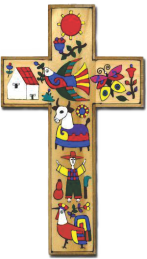The Curriculum
Theoretical teaching (first segment)
1. Linguistics and language-learning skills–this introduction to the Spanish and Pokomchi languages will help the student understand not just how to pronounce and speak a little of these languages, but also to realize the importance of language in culture, and to grasp the diversity of cultures in modern-day Guatemala.
2. Cultural adaptation skills–through carefully chosen readings and targeted discussion, the student will consider many questions associated with a wide range of social and anthropological topics relevant to cross-cultural ministry, including:
- participant observation
- etic and emic models
- ethnography
- culture shock
- ethnocentrism
- semiotics applied to cross-cultural interaction
3. During this first segment, special activities like local field trips and special movie nights will alleviate the strain of so much focused study. Guest speakers will also add zest to class sessions. These are chosen for their expertise and experience, providing different viewpoints, knowledge, and real life perspectives with which to challenge students.
40 hours of teaching, plus 20 hours of practical learning, over the course of ten days=60 hours
Practical teaching (second segment)
1. The student now moves in for a brief time with a Mayan or Spanish-speaking family. During this time, he or she is able to apply the principles taught in class, reflect on how his experiences relate to his spiritual life, and participate with local families and ministries in various social and religious activities, all the while using the linguistic and cross- cultural skills learned during the prior week. (Students will be paired up, not alone, during this time of cultural immersion).
7 or more hours per day for 4 days=30 hours
2. Following these intense few days , students have time to debrief together under the direction of Boris and Beth. This gives students a chance to articulate their experiences, and talk about what they have learned. This feedback and interaction will also contribute to a detailed evaluation from the directors of the student’s responses during the CAMPO course (the equivalent of a “grade”). More importantly, each student will have the chance to receive one-on- one mentoring opportunities from close personal contact with CAMPO staff.
3. Finally, the student is exposed briefly to life in other parts of Guatemala, including visits to places in Guatemala City (located four hours south of San Cristobal, where CAMPO is carried out) and Antigua (located one hour from Guatemala City).
6 or more hours per day of hands-on experience and debriefing for 4-5 days=30 hours
Total hours of instruction: approx. 120 over the course of 20 days of CAMPO

Dates & Cost
Winter Session
October 26 – November 20, 2020
Summer Session
June 7- July 2, 2021
For individuals
-
Single
-
Pricing includes all your ground transportation, food, lodging and course materials
-
Airfare additional
For Families
-
For couples and families
-
Pricing includes all your ground transportation, food, lodging and course materials
-
Airfare additional
Questions?
Missionary Ventures International - [email protected] | 1017 Maitland Center Commons Blvd Maitland, FL 32751-7205 | P 407.859.7322 | ©2022 Missionary Ventures International

